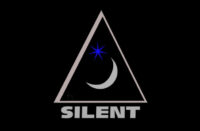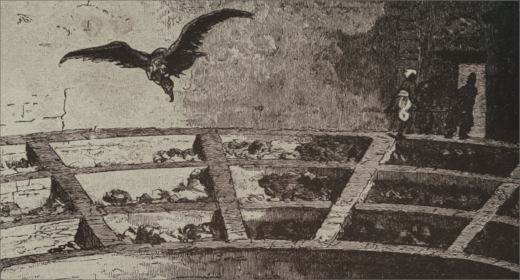 I just heard today (Saturday, October 7) the unfortunate news that Tower Records, after years of toiling in bankruptcy (and suffering from maladies both internally created and externally endured), is finally going out of business. I understand that if all goes well (surely an ironic observation at this point), the company, already slurped up by a corporate liquidator that mandated an immediate 10% off the price tags of all the stores’ existing inventory, is hoping to remain open through the holiday season, and thereafter, the whole kit & kaboodle is, well, kaput.
I just heard today (Saturday, October 7) the unfortunate news that Tower Records, after years of toiling in bankruptcy (and suffering from maladies both internally created and externally endured), is finally going out of business. I understand that if all goes well (surely an ironic observation at this point), the company, already slurped up by a corporate liquidator that mandated an immediate 10% off the price tags of all the stores’ existing inventory, is hoping to remain open through the holiday season, and thereafter, the whole kit & kaboodle is, well, kaput.
There are numberless reasons to feel somber regarding this news. personally, I haven’t been much of a Tower customer myself these last years; sure, I duck in to the New York city & northern New Jersey stores every now and then (mostly to look through whatever bargain bins the management may have scared up), but their prices have always been on the high end, and their depth of catalog has gradually depleted throughout the years. Basically, they carry little that I am interested in, but sometimes the odd item or other shows up and necessitates purchase. It is important to note that Tower has not only been around for quite some time (their Los Angeles flagship store, on Sunset strip, opened in 1960), they were one of the first “megastore” retailers to cater to both mainstream and independent tastes. In the haughty days of vinyl, Tower was one of the few major retailers who would stock local groups’ albums (on consignment, of course), their store employees were generally music nuts who were both enthusiastic and knowledgeable, their inventory ran deep and comprehensive in its scope and genre, prices were relatively affordable, and, most importantly, they tended to champion the underdog (nee, the independent). when I published my first magazine, i/e, back in the early to waning 90s, Tower was always one of my best, and most vital, retail sellers–my sell-through rate was upwards of 60-70% (well above the standard 30-40%), and even with the recent and late e/i, Tower remained one of the integral newsstand environments for the magazine (although not reflective of i/e‘s formidable numbers).
No, this news is saddening because at heart it might be the final nail in the coffin for the record shop as we know it. Tower’s fall calls into question what will soon follow: the repercussions throughout the industry will be widely-felt, and will augur in the first major tremors of a subsequently larger earthquake.
Now, I’m sure there are those whose response to this news might convey simply a “so?” and a shrug–many of you probably already do a good chunk of your record purchasing online via the usual suspects (eBay, Amazon, Gemm, Forced Exposure, Smallfish, U-Cover, etc., etc.). Well, call me a dinosaur, an old fart, whatever: collecting and listening to music for over 33+ years now, the idea of the record store becoming one with the blacksmith and the wooly mammoth is extremely disheartening. It’s the next step in the eventual dissolution of the sound carrier (CD or wax), the next step in the process of everything we do coming solely and surely through a computer screen. It’s the death wail of an artform.
Who knows? Maybe this is simply the twilight for the superstore concept, that the halcyon days of the behemoths (Tower, Virgin, et al) are over, and that perhaps the resurgence of the independent record shop is nigh. Alas, contemporary modes of behavior regarding the dissemination of recorded music leads me instead to believe this is anything but true. Nevertheless, where do the species of store such as the California Amoeba chain fit in? Will they be able to adapt and thrive? What will the indie shop need to do to survive in this age of high rent, the overwrought commodity of real estate, artistic ignorance, technological bludgeoning and pandemic downloading? Indies have in fact been dying by the dozen this year (witness the demise of Aron’s and Rhino in L.A. alone–although the Claremont shop is still hanging in there–plus numerous stores in Chicago, New York City, hell, throughout the entire u.s.).
So perhaps the writing on the wall here is clear: you soon just won’t be able to walk into the kind of store that was once studded with posters, dusty racks, bargain bins, display shelves and endcaps stuffed with recordings rare, o.o.p., obscure, and trivial, recordings in various shapes and sizes… in short, part and parcel of what was enjoyable about the physical act of music shopping. And I’m understating the case if I say that it’ll be a cryin’ shame.
Perhaps I’m an anachronism, but you know what? Tough. This whole thing simply sucks on ice. All this wonderful so-called future shock is doing nothing lately but singeing my eyebrows.

















![Pole :: Tempus Remixes (Mute) — [concise]](https://igloomag.com/wp/wp-content/uploads/2025/04/pole-tempus-remixes_feat-75x75.jpg)






![Hasbeen :: Bunker Symphonies II (Clean Error) — [concise]](https://igloomag.com/wp/wp-content/uploads/2025/04/hasbeen-bunker-symphonies-ii_feat-75x75.jpg)

